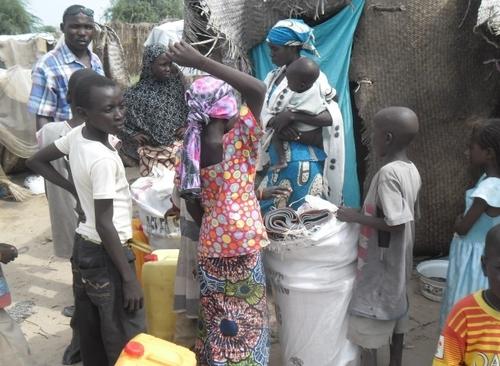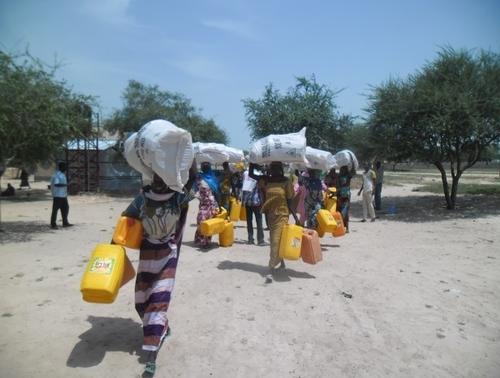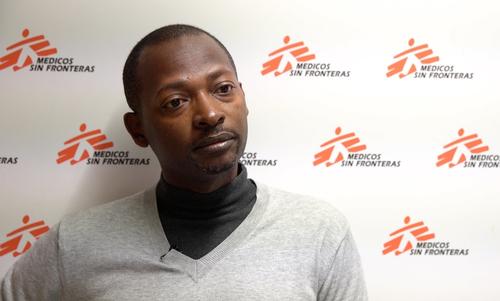Over the last few days, more than 200 families from Nigeria and Chad have reached the town of Toumour, located in the east Diffa region of Niger, fleeing violence and hunger in their home towns. Most of the new arrivals are women and children. According to their testimonies, they walked for four or five days, though only at night for fear of being attacked by Boko Haram or detained by the army.
A number of the new arrivals were hosted by the local population, many of them displaced people and refugees themselves, who continue to show great solidarity during the new waves of displacement and share the limited resources they have. Despite this support, 77 of the families that recently arrived in Toumour were living in very poor conditions, without enough food or basic necessities. To assist these families, an MSF team has distributed relief kits with household provisions, blankets, mosquito nets and hygiene items.

Djoumai Tchaiman, 28 years old, was one of the refugees who received a relief kit. “I come from Lake Chad, on the border between Nigeria, Chad and Niger,” Djoumai says. “We had been wanting to leave there for a long time due to the insecurity but we couldn’t because we didn’t know where Boko Haram might be. We took the opportunity to flee when there were problems between them and they were going to fight near our village. It was 8pm. After four days walking, we arrived in Toumour – me, my five children, my husband and my parents-in-law. Unfortunately, when we arrived, my husband was arrested by the military as a suspect. Right now, I don’t know where he is.”
At the MSF-supported health centre in Toumour, there have been many medical consultations linked to fatigue and stress among the newly arrived refugees due to the long days of walking and fear of being attacked or arrested. MSF is also providing nutritional support for children under five years of age and their families.

New refugees continue to arrive
In addition to these 200 families, small groups of refugees continue to arrive inToumour. Although many aid organisations left the area after the attacks that took place last June in the district of Bosso, where Toumour is located, the town still has several services in place, including water points and a health centre where medical attention is free for the entire population. For new arrivals, the main problem is access to food; although there are basic foods in the market, the displaced people have no money to buy them.
“Given the critical situation in the areas of Nigeria and Chad that border Niger, it is likely that Toumour will continue to receive more refugees in such a precarious condition as this last group,” explains Youssouf Demdelé, MSF’s deputy head of mission in Niger. “The population has not been able to grow their own food and is dependent on food distributions. In addition, we are in the middle of the malaria season. There are several humanitarian agencies working in Diffa but there are still areas where more help is needed.”
As the MSF team distributes the relief kits, they are approached by a neighbour of Djoumai Tchaiman. “It’s a very human gesture what you are doing, even though we do not benefit because we were displaced earlier,” she says. “It’s fair. The whole neighbourhood is aware of Djoumai and her children’s situation.”
MSF has been working in Diffa region since December 2014. To improve healthcare for the local and displaced population, MSF is working alongside the Ministry of Health in the main maternal and paediatric health centre in the city of Diffa, in the district hospital in Nguigmi and in several centres in the districts of Diffa, Nguigmi and Bosso. MSF is also providing assistance in Assaga, GarinWanzam and Kintchandi, where thousands of displaced people have settled. In 2015, MSF conducted more than 142,000 medical consultations in the region.





